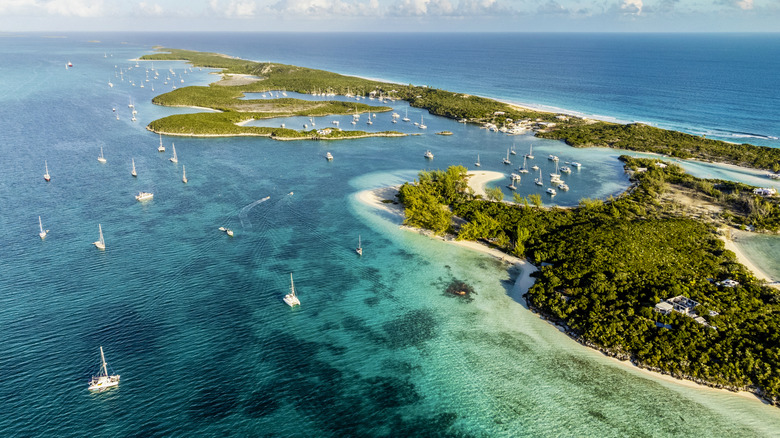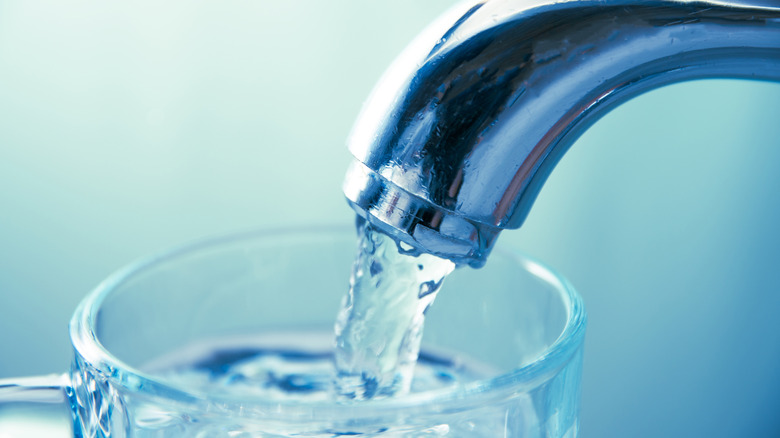A Common Drinking Source Americans Take For Granted Can Quickly Ruin Your Caribbean Vacation If Consumed
The Caribbean islands are some of the most sought-out travel destinations on the planet, and for good reason. Who wouldn't want to spend their vacation days lounging under palm trees, swimming in crystal blue waters, and basking in all that luscious sun and sea breeze? Even though the region is well known for its warm and welcoming hospitality, there are a few crucial warnings to consider before embarking on a trip to the Caribbean. One of the most important admonitions? Be wary of drinking the tap water.
While drinking from the tap is incredibly common in most of the United States, tap water across the Caribbean is generally considered unsafe to drink. Of course, this is a broad generalization, as many resorts and hotel properties in highly urbanized areas maintain high standards for water treatment. However, it's a good rule of thumb to avoid consuming tap water altogether to avoid contracting a contaminated water-related illness like Hepatitis A (it's also a great idea to ask your doctor about getting the Hep A vaccine prior to travel).
Those traveling via cruise liner needn't worry while on board, as tap water on cruise ships is desalinated and safe to drink. When pulling into port for a stopover, though, it's not a bad idea to keep your canteen topped up for the day ahead, especially if you're embarking on any outdoor adventures. For full advisories on drinking water quality, be sure to check the CDC Destinations database prior to travel.
Tips for hydrating safely while in the Caribbean
It should go without saying that staying hydrated while on vacation is crucial, especially when traveling to destinations where you may experience hot temperatures, prolonged sun exposure, and high elevation in mountain areas. Though drinking tap water while in the Caribbean is generally ill-advised, there are many ways to hydrate safely without inadvertently exposing yourself to disease. The most common way to avoid getting sick is by purchasing bottled water, which will be abundantly available in every country. Just make sure the seal is unbroken before buying, as less reputable street vendors may sell tap water in recycled bottles.
If you're an eco-conscious traveler, there are also a number of proven strategies to stay safe without the need for plastic bottles. Consider investing in a reusable straw or water bottle that has a built-in filtration system designed to remove viruses and bacteria. Water purification tablets and activated charcoal sticks are also an incredibly effective way to make the available water potable. Just be aware that some products may impact the clarity or taste of your drinking water. If you have the right amenities, boiling your tap water for one to three minutes will kill any harmful bacteria in a pinch. As an extra precaution, make sure to take extra care when relying on the tap for brushing teeth or preparing food, and be sure to ask for no ice in your drinks in areas where you're uncertain of the water quality.

